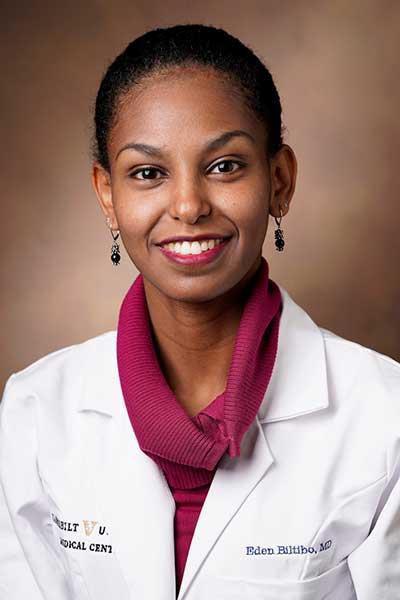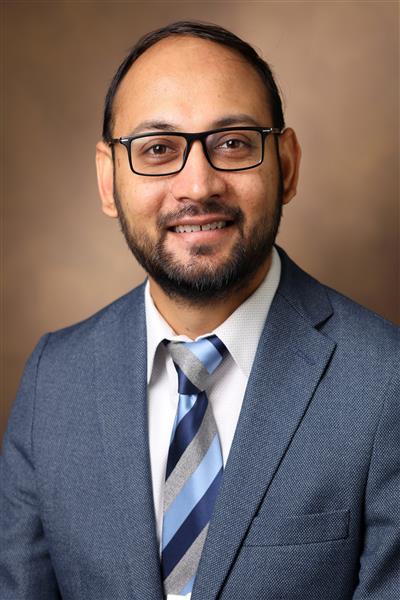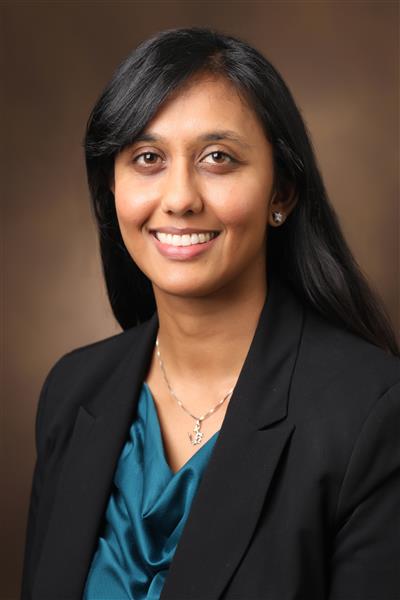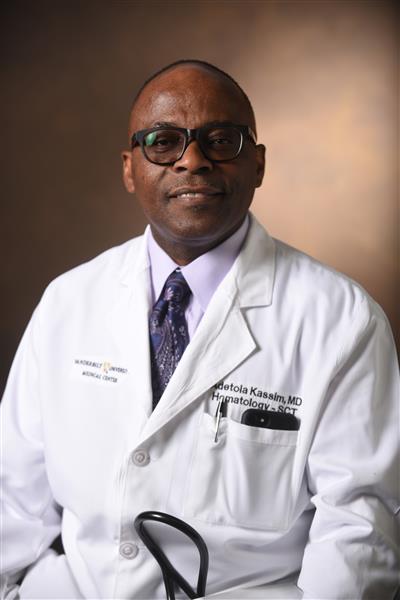Stem cell transplant and cellular therapy
Overview
Vanderbilt-Ingram Cancer Center leads the Southeast in using immunotherapy and cellular therapy for treating cancer. We perform more stem cell transplants than almost anyplace else in the nation.
Cellular therapies treat certain life-threatening diseases. They are a type of immunotherapy; they help the immune system recognize and fight cancer cells.
Stem cell transplantation (bone marrow transplant) is a type of cellular therapy. Stem cells are found in marrow, inside bones. They make cells that circulate in the bloodstream: red and white blood cells and platelets. A stem cell transplant treats blood cancers and some non-cancer conditions. Transplanting healthy stem cells into a person with diseased bone marrow restores the body’s ability to grow healthy blood cells. We are nationally recognized for our stem cell transplant programs to treat blood cancers.
Conditions We Treat
- Amyloidosis
- Myelodysplastic syndrome
- Myeloproliferative disorders
Meet Your Care Team
Bhagirathbhai DholariaMD, FACP
- Bone Marrow Transplant, Hematologic Cancer, Hematology, Hematology/Oncology, Stem Cell Transplant
Andrew P. JalloukBS, MD, PhD
- Cancer, Hematologic Cancer, Hematology/Oncology, Leukemia, Acute and Chronic, Lymphoma, Low, Intermediate, and High Grade, Stem Cell Transplant
Reena V. Jayani-KosarzyckiMD, MSCI
- Cancer, Hematologic Cancer, Hematology, Hematology/Oncology, Leukemia, Acute and Chronic, Lymphoma, Low, Intermediate, and High Grade, Medical Oncology
Adetola A. KassimMD
- Bone Marrow Transplant, Cancer, Hematologic Cancer, Hematology, Hematology/Oncology, Leukemia, Acute and Chronic, Stem Cell Transplant
Why Choose Cellular Therapies and Immunotherapy at Vanderbilt
- Recognized cancer care
The National Cancer Institute designates us as a Comprehensive Cancer Center, the highest ranking by the world’s leading authority on cancer. Vanderbilt is the only such designated cancer center in the state of Tennessee that treats adults and children.
- Knowledge and experience
Our stem cell transplant program treats more than 300 adults every year. We were also the first cancer center in Tennessee to successfully treat a patient with non-Hodgkin lymphoma using his own re-engineered immune cells (Chimeric antigen receptor T cell therapy, or CAR T). This experience means expert care for you. We are consistently ranked highly for patient survival after stem cell transplantation.
- Team approach
Our oncologists, hematologists and radiation oncologists combine their expertise to create a personalized care plan for you. These specialists take into account your diagnosis, your genes, your symptoms and your circumstances. And we work with your referring doctor. We also have large team of nurses, pharmacists, case managers and more who will ensure that all aspects of your care are well covered.
- Convenient care
We are one of the few centers in the country offering stem cell transplantation on an outpatient basis. We have also pioneered outpatient CAR T therapy. This means you can stay nearby with your family instead of in the hospital after a transplant.
- Support services
We offer ongoing services to ensure that you have what you need to feel better, physically and emotionally. For example, our stem cell transplant wellness program, RESTORE, helps patients with allogeneic stem cell transplants improve cardiovascular fitness, strength and functional ability.
- Latest technology
We are one of the core research centers for Blood and Marrow Transplant Clinical Trials Network (BMT CTN). This means you will have access to clinical trials for stem cell transplant research. Also, we offer cellular immunotherapies for relapsed or treatment-resistant cancers.
- Specialized care
We have care teams specially trained in stem cell transplants for patients with sickle cell disease, amyloidosis and multiple myeloma. We also have a stem cell transplant team focusing on evaluating senior citizen patients, to minimize their risk of complications after transplant.
Treatments We Offer
We offer a full range of stem cell transplants and cellular therapies, including:
- Reduced-intensity transplant
- Umbilical cord blood transplant
- Donor lymphocyte infusion
- Experimental cellular therapies
Immune Checkpoint Inhibitor Clinical Trials
We offer clinical immune checkpoint inhibitors with other immune therapy drugs and other treatments to give you the most effective treatment.
Your immune system needs to be able to tell the difference between healthy cells and foreign cells, so it can attack the bad ones and leave the healthy cells alone. Checkpoints are molecules on certain immune cells that are activated when the body detects an invading cell. Cancer cells turn off these checkpoints and are able to hide from the immune system.
PD-1 is a specific checkpoint on the T-cells of the immune system. PD-1 keeps the cells from attacking. The job of the checkpoint inhibitor drugs is to block PD-1, allowing the T-cells to recognize and attack cancer cells.
For Referring Physicians
To refer a patient to Vanderbilt’s Cellular Therapy and Immunotherapy team, call (615) 343-3700.














